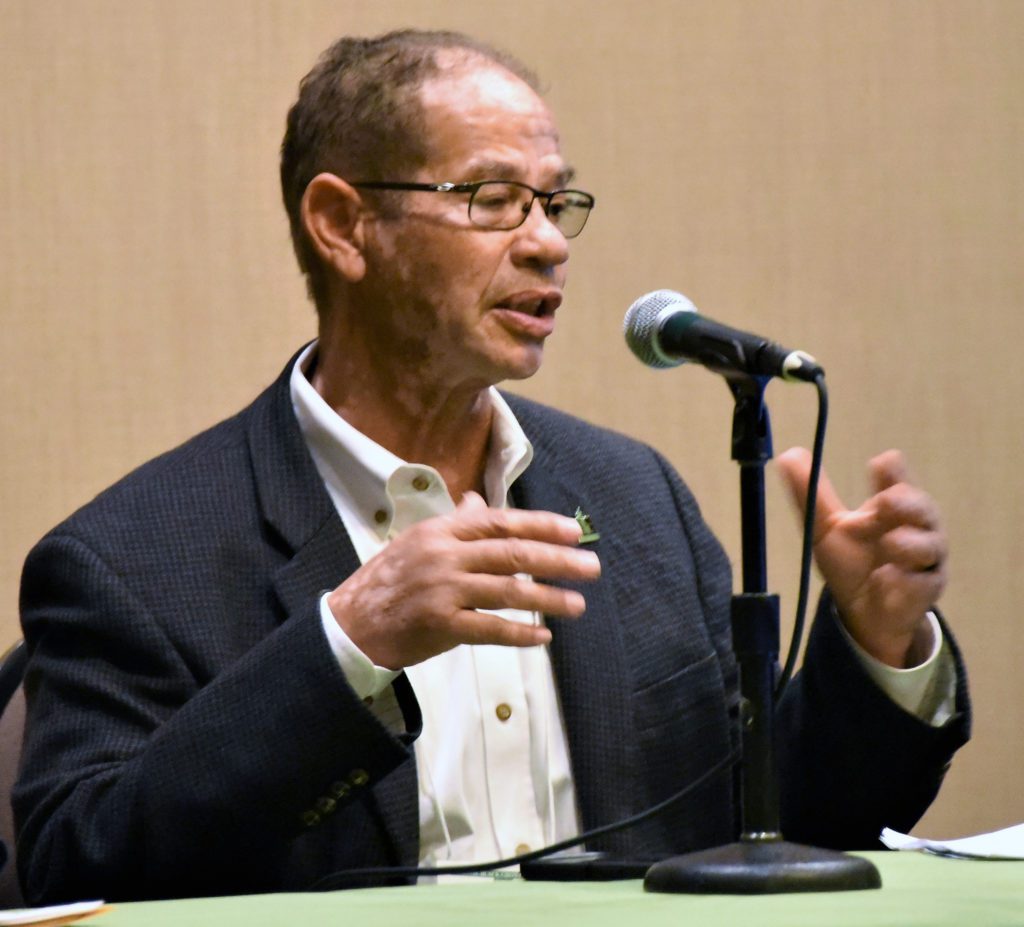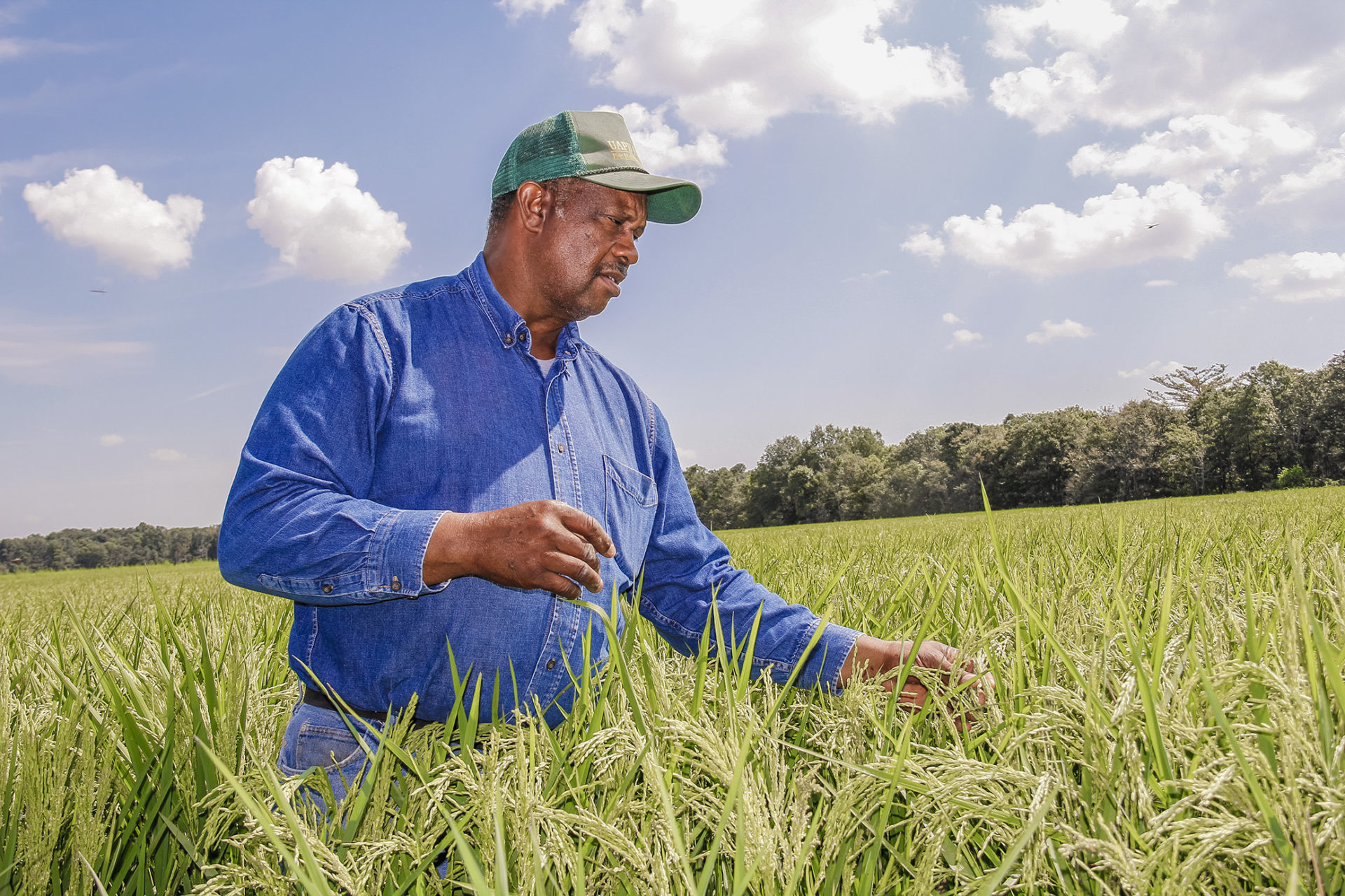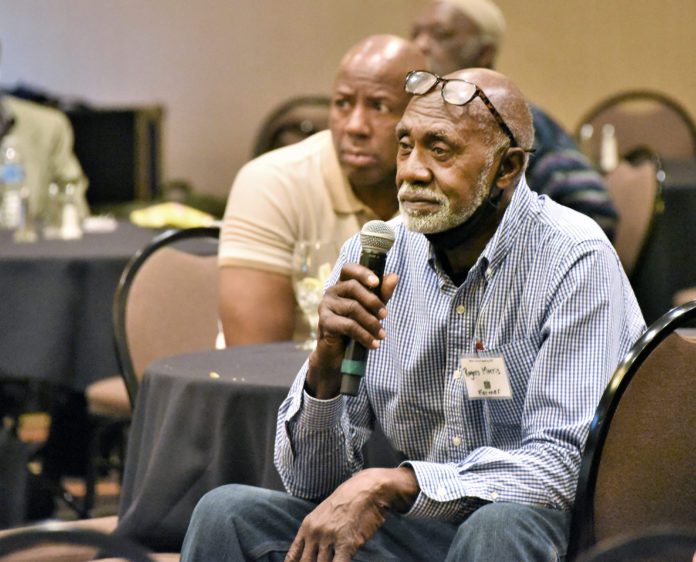For three days this past week, 200-plus African-American farmers from across the southern states used the Hilton’s DoubleTree Hotel in Downtown Memphis as a hub for growing their awareness about technology and other developments to increase the prospects of success.
They assembled for the (Dec. 15-17) annual meeting of the National Black Growers Council (NBGC). A string of panels offered expertise and proficiency in multiple aspects of how to be more successful at farming, despite challenges presented by the COVID-19 pandemic over the past two years.

Bill Bridgeforth is an NBGC board member. His family farm in Alabama grows cotton, corn, wheat, soybeans and canola using a variety of cutting-edge agronomic techniques and land conservation practices. He encouraged growers to invest in technology upfront to realize greater productivity in the years ahead.
“It is important to incorporate technology, especially biotechnology,” said Bridgeforth. “The use of collected data will help you know how to treat the soil, what to put down before planting.”
He also encouraged fellow growers to take out crop insurance.
“One thing that has taken the rocks out of my pillow is Whole-Farm Revenue Protection, WFRP,” said Bridgeforth, a fourth-generation farmer. “It will cover 85 percent of your crops in case something happens. I always say it takes three years to recover from a bad year, and five years to recover from a good year. This Whole Farm can take away a lot of the worry.”
The NGBC has roots extending to 2006. That is when a group of African-American row crop farmers met to address issues vital to their operations’ viability. A row crop can be planted in rows wide enough to allow it to be tilled or otherwise cultivated by agricultural machinery tailored for the seasonal activities of row crops. Such crops are sown by drilling rather than broadcasting (spreading).
Four years later, those farmers were formally organized as the non-profit National Black Growers Council. Its mission is to “improve the efficiency, productivity and sustainability of Black row-crop farmers.”
In 2020, the NBGC joined with John Deere and Thurgood Marshall College Fund to form the LEAP (Legislation, Education, Advocacy and Production Systems) coalition. The focus is on helping to eliminate barriers created by heirs’ property and provide resources to advance the lives and livelihoods of African-American farmers.

“An organization like the National Black Growers Council is critical to Black farmers,” said Dr. Hazell Reed, executive director. “There is always mentioned how far we have all come and the great level of progress we have made. While it’s true, we have made so much progress in many areas. But too many things have remained the same.”
Black farmers, he said, need what other ethnic groups need – political support and the experience and advisement of peers. The fellowship that the association facilitates with other Black Farmers is crucial, he said.
“Today, it’s more important than ever, having an organization such as ours,” said Reed. “The NBGC serves to represent the particularly unique needs of full-time Black farmers. We have formed partnerships with each other, with majority farmers, and with corporations, because together we all contribute to the global food supply.”
According to a Successful Farming report, as of February of this past year, there were no Black farmers on the boards of directors of the American Farm Bureau Federation, U.S. Grains Council, the United Soybean Board, National Corn Growers Association, National Peanut Board, Cotton Incorporated, or National Cattlemen’s Beef Association. At that point, 48 percent of Black farmers raised cattle, and common row crops were grown by nearly 20 percent of them.
Panelists touted the high-tech developments of smart tractors that guide themselves down a straight row, marketing phone apps that help devise successful business plans and scientifically proven ways of soil management for higher yields and greater profits.
“Precision technology and the use of data collection will improve productivity,” said Luke Zerby, manager of Precision Land Management for New Holland Agriculture. “Precision farming takes the guesswork out of some aspects and can increase yields by 15 to 20 percent. Precision agriculture will result in higher production, sustainability, efficiency, and full maximization of resources.”
Grower Dexter Gilbert, vice-chairman of the board from Campbellton, Florida, challenged growers to offset the economic effects of the pandemic by investing in precision technology – tractors and other equipment – for successful growing.
“There won’t be anymore land created,” said Gilbert. “We have to do more with less, and soil health is essential to producing higher crop yields in smaller spaces. We grow watermelons. Accessing available technology and using the scientific knowledge from data collected over the years will make all the difference.”
Many NBGC members are multigenerational growers, who have carried on a family legacy. Others have worked hard as full-time farmers to create profitable estates in the rural south.
Lawrence Conyer of Pine Bluff, Arkansas turned to farming after a career in the U.S. Army. He has built a huge family business of ambitious growers.
“My daddy was a sharecropper,” said Conyer. “You know, sharecroppers were given 10, 12, 40 acres to farm, but they never made a profit and barely broke even. We didn’t have stores like Wal-Mart or TJ Maxx. We just had the local store that extended us credit.
“My daddy worked until he got too old. Then, they put him in the shop to work on the equipment. He could fix anything.”

Conyer started to buy up land for himself back in 1999.
“I bought 21 acres back in ’99,” said Conyer. “Today, I own 1,500 acres, and I’m trying to buy 400 more. That will put me at nearly 2,000 acres. That’s how you thrive. We are always looking for opportunities to expand our operations.”
Referencing “countless struggles” African-American farmers have survived over generations down to the present, the NBGC website speaks to the need for all of its farmers to pay “special attention” to challenges posed by the COVID-19 pandemic.
It also expresses this observation:
“We’ve had profitable years and disastrous years, endured discrimination and intimidation, but there’s nothing else we’d rather do.”



